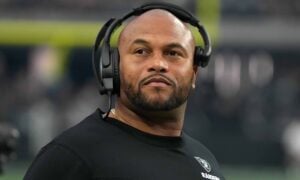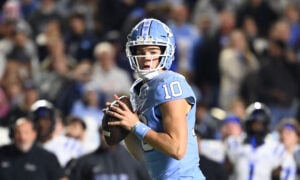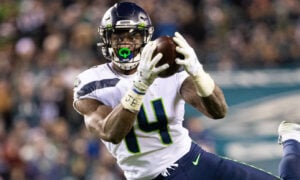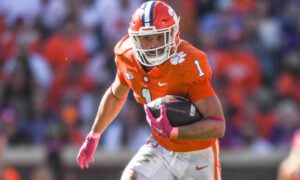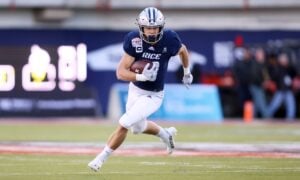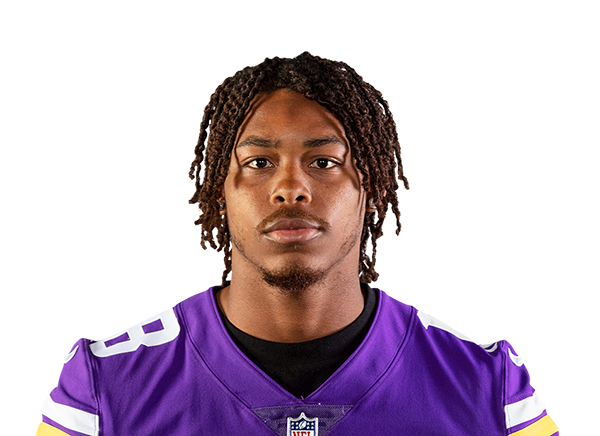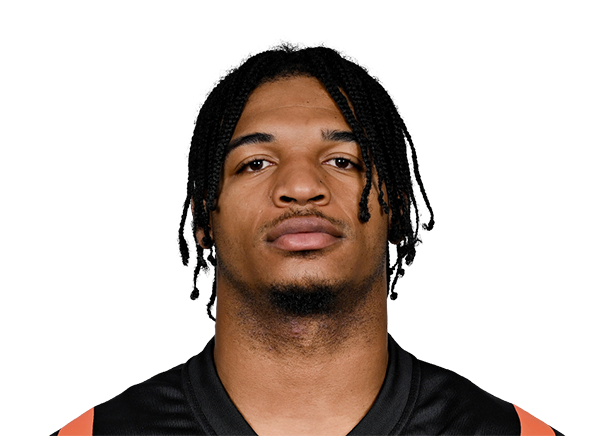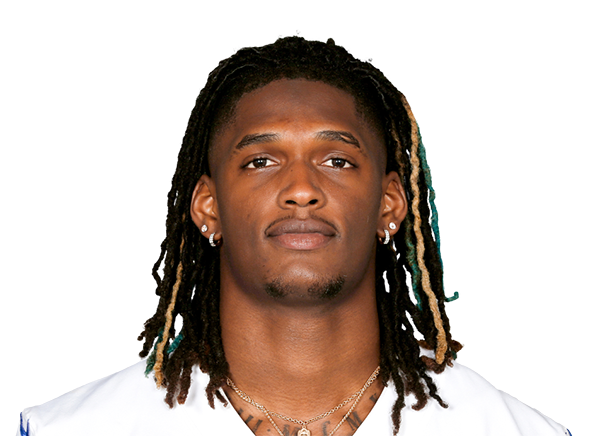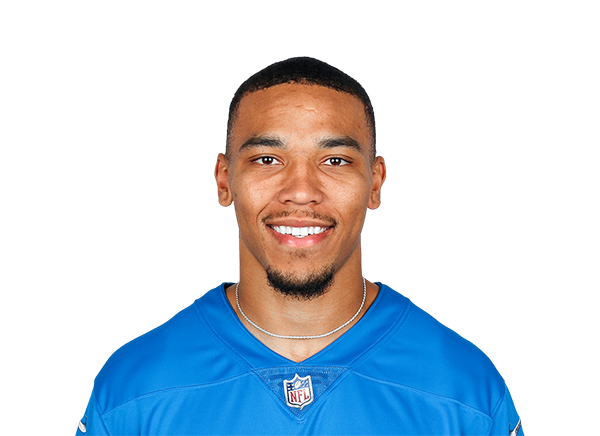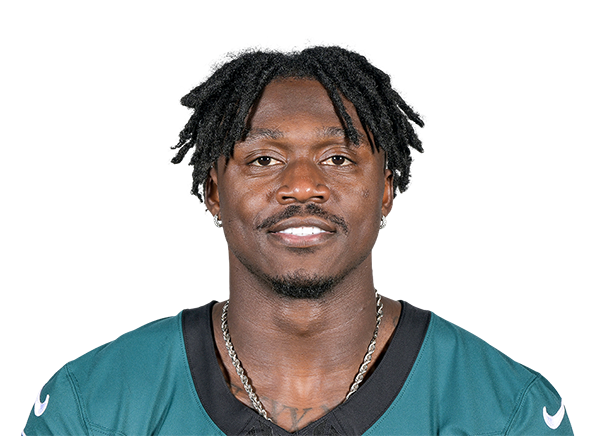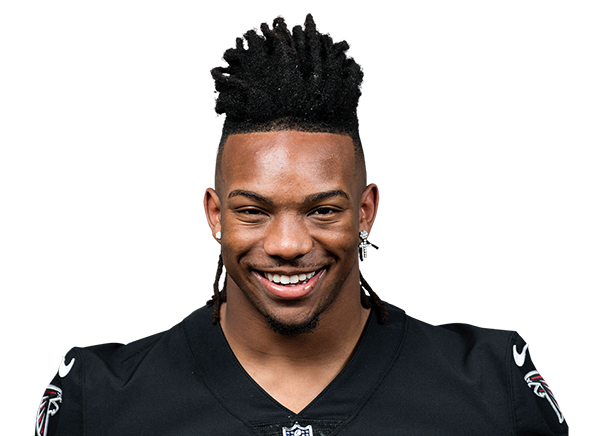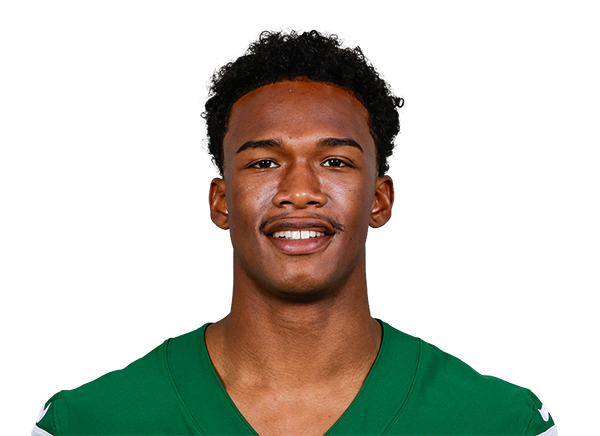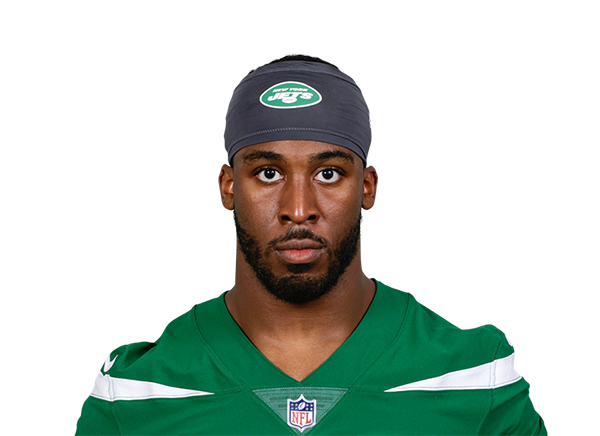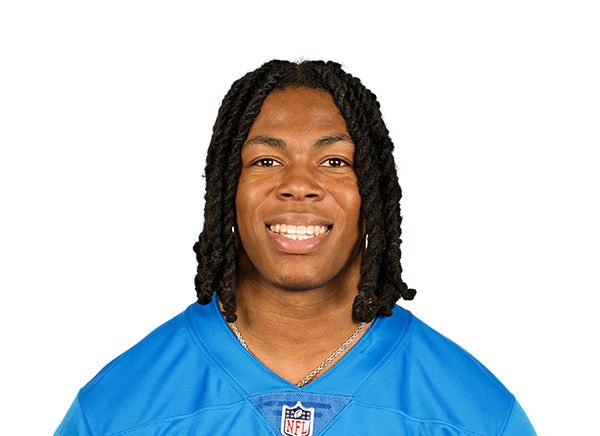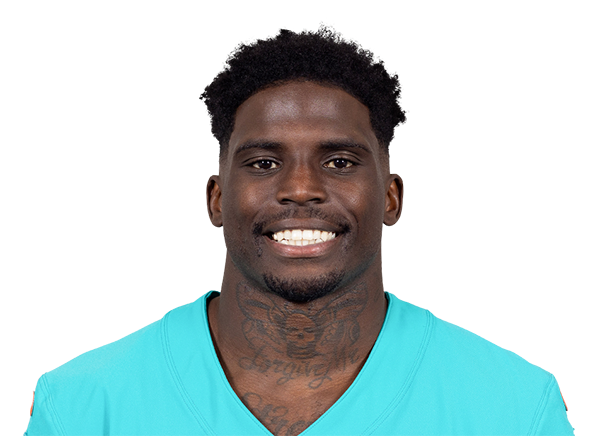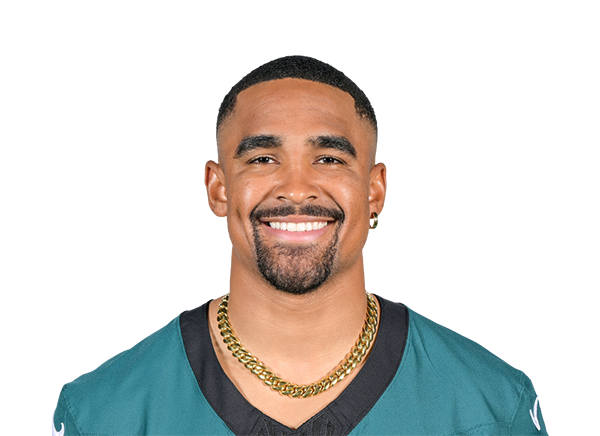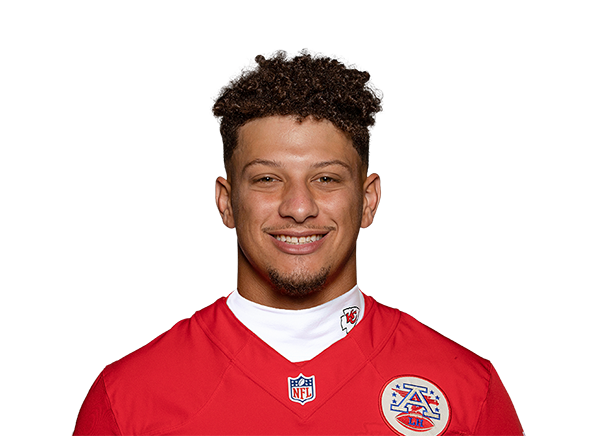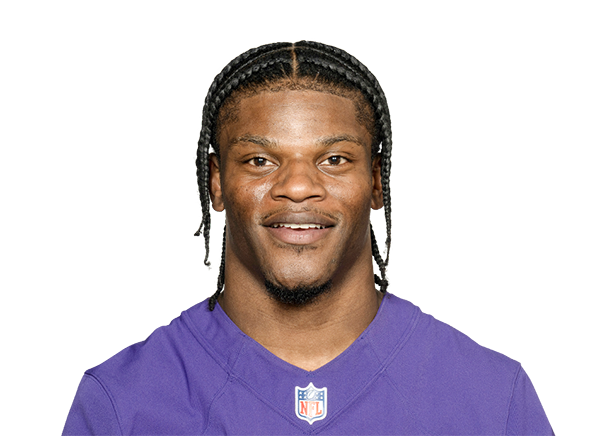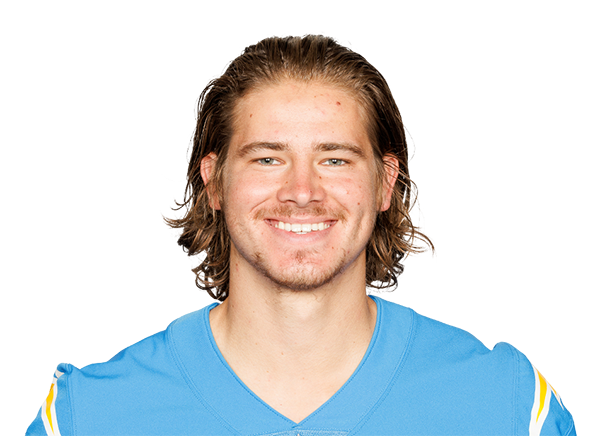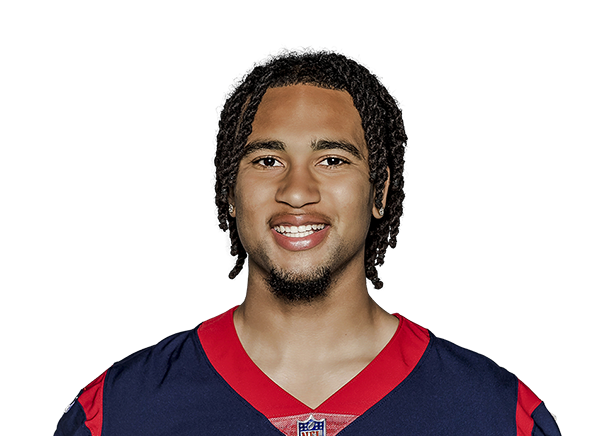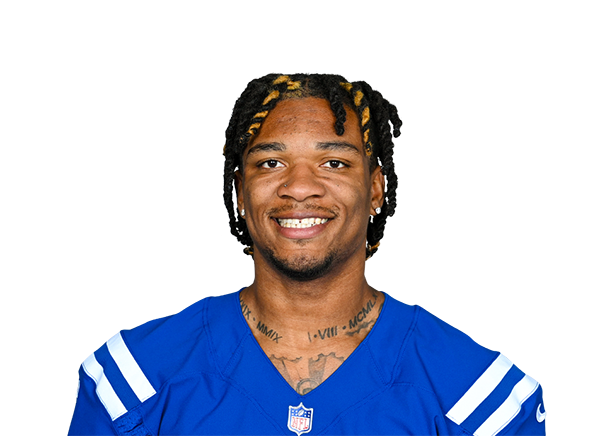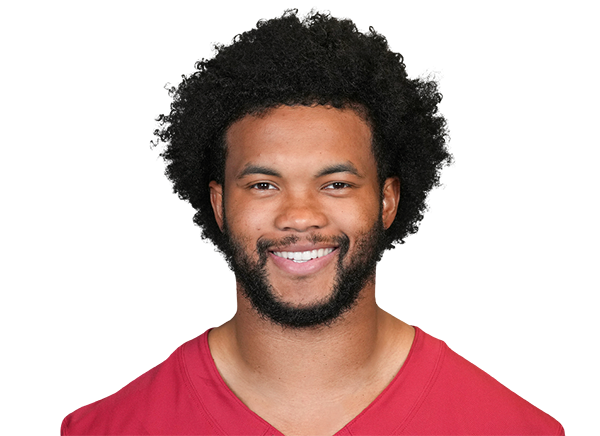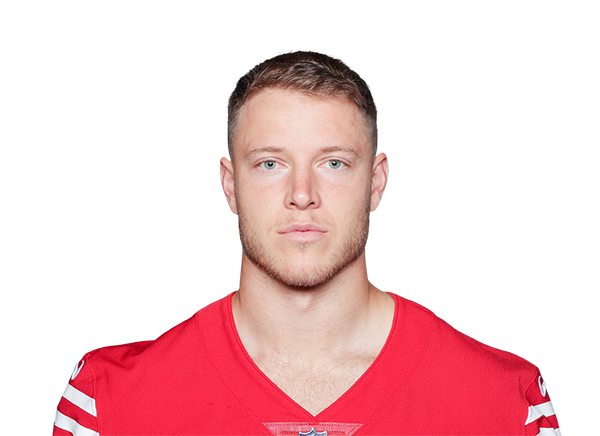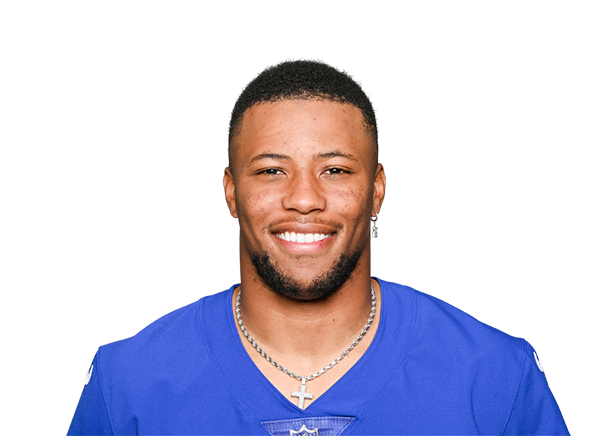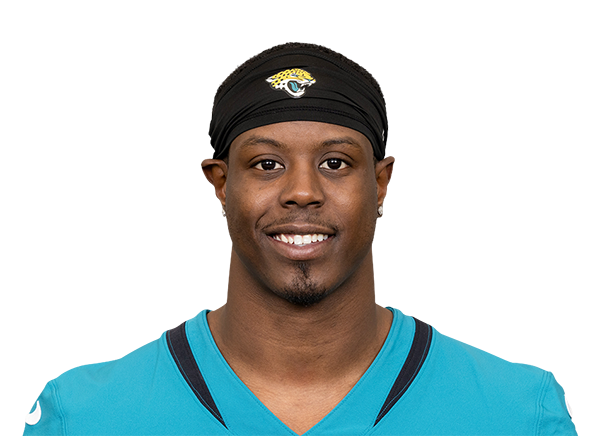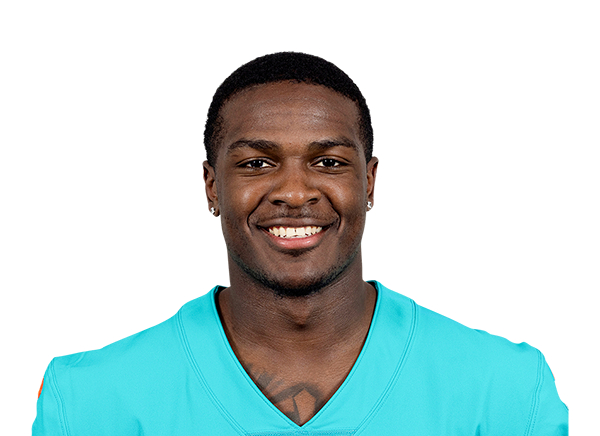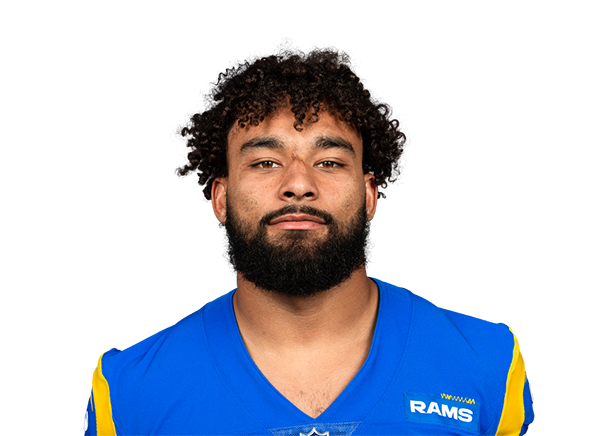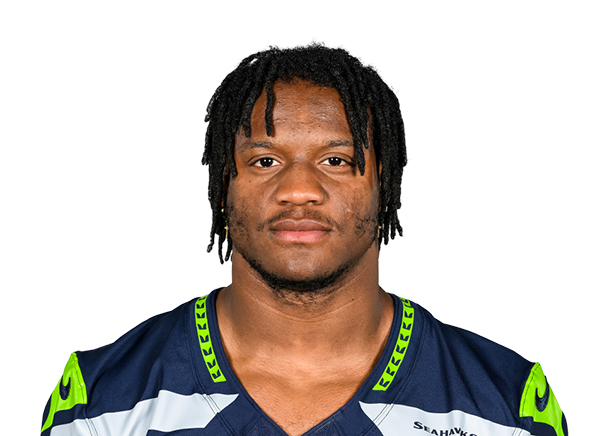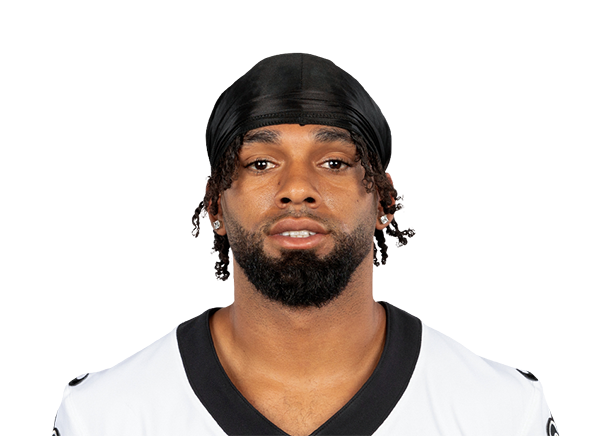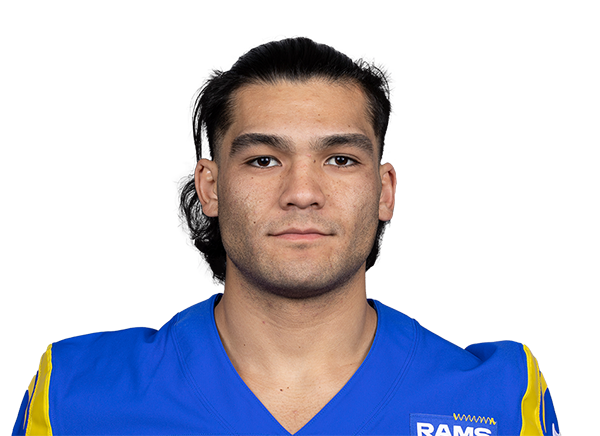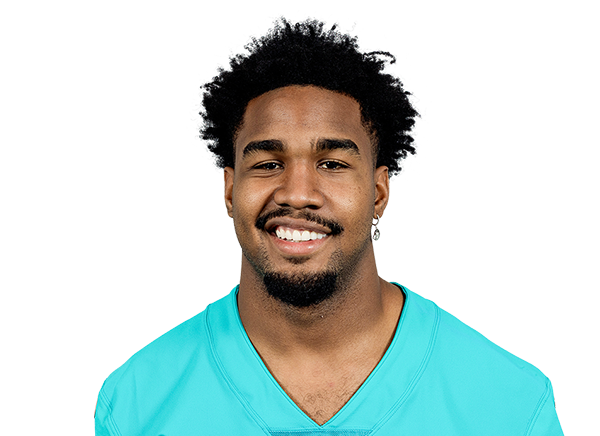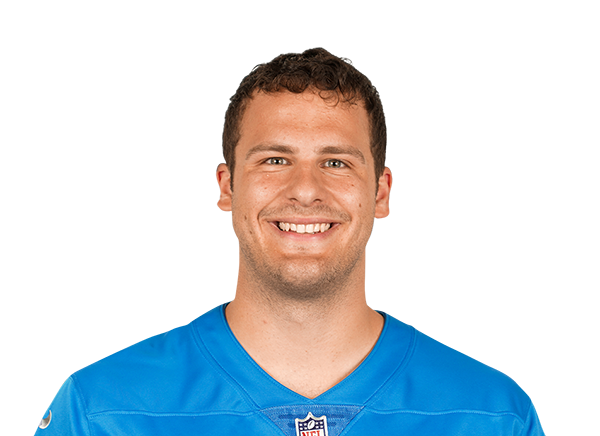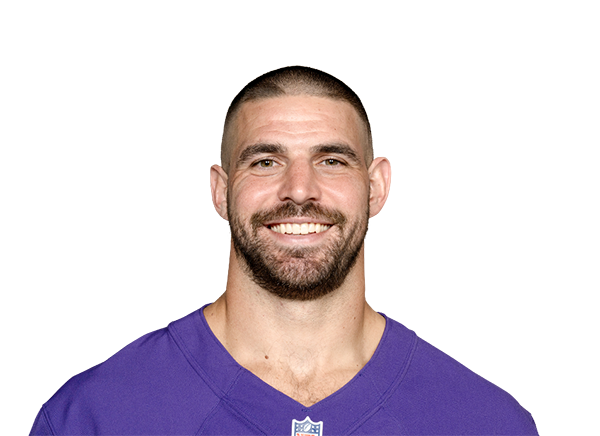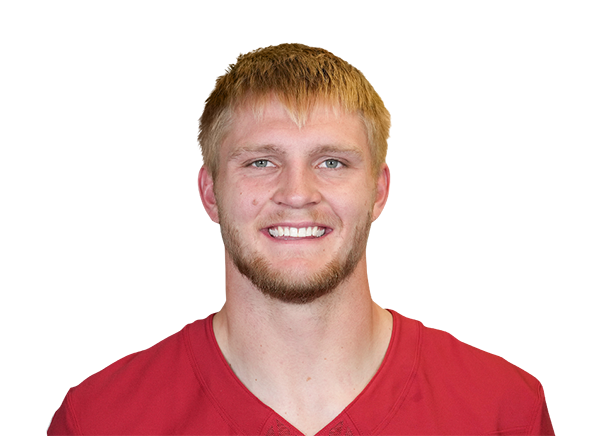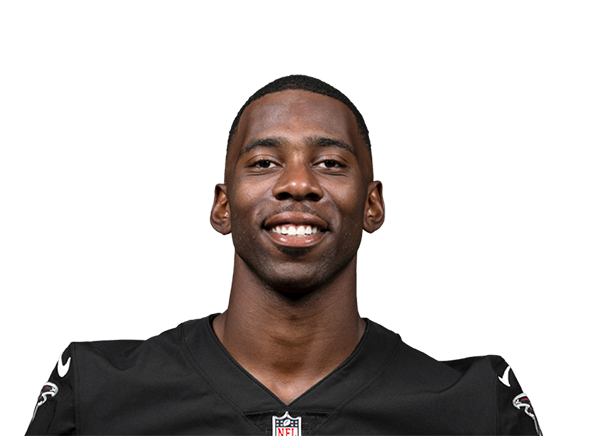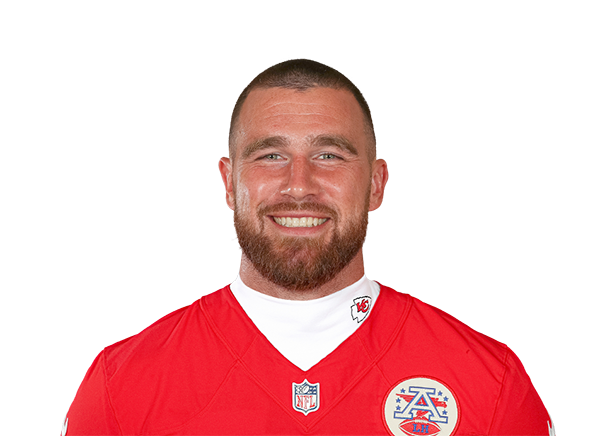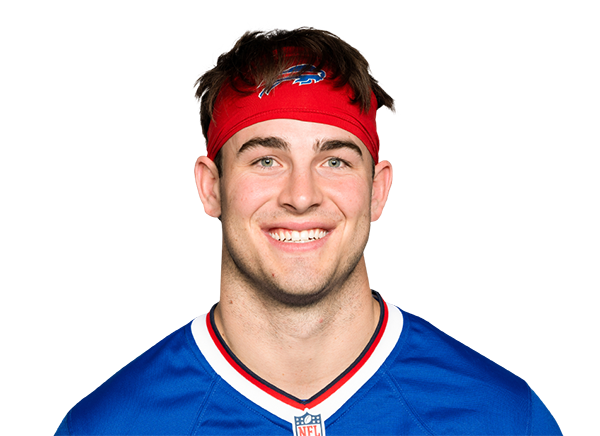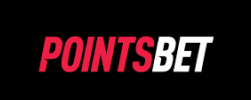Instant Analysis: Agony and Ivory
Chris Ivory’s signing with the Jacksonville Jaguars appears imminent, and those with T.J. Yeldon on their dynasty rosters are weeping and gnashing their teeth. But they’re not the ones who should be concerned.
First, the contract. Early reports value Ivory’s deal as worth more than $30 million over five years. At first glance, that looks bad for Yeldon, but the second glance is more important. A deal of that length almost certainly includes high-salary, non-guaranteed money seasons near the end of the deal. The Jaguars front office folks aren’t fools; they left themselves an out. Moreover, the Jaguars need to dish out some cash to meet the oft-overlooked salary floor.
With that out of the way, let’s look at the individual impact of Ivory’s acquisition.
[am4show have=’g1;’ guest_error=’sub_message’ user_error=’sub_message’ ]
Chris Ivory
This is a sell opportunity for Ivory. In New York, he was locked in as the early down back; in Jacksonville, that’s his ceiling, but his floor is much lower. Regardless of your opinion of Yeldon, he’s more formidable competition than Bilal Powell. And while Ivory got paid, the Jaguars spent a premium draft pick on Yeldon just last offseason. Plus, he’s moving from a team that rushed the ball 28 times per game in 2015 (10th in the league) to one that rushed the ball 23.5 times per game (30th). If Ivory can keep up his 16.5 carry per game pace from New York, consider it a victory.
Most owners rostering Ivory don’t see it this way. The majority wouldn’t part with him for anything less than an early 2016 rookie second (most of the write-in voters wanted a first):
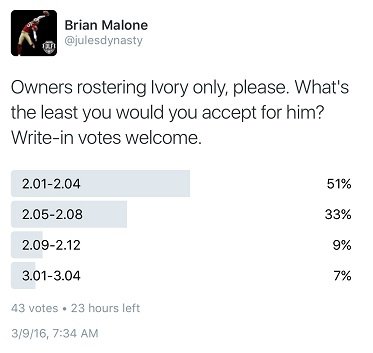
If you own Ivory, look to sell for an early second, but settle for a mid-second.
T.J. Yeldon
Yeldon is a potential buy low, but only if the owner rostering him overreacts. Yeldon will lose some carries, but his value comes from the passing game, and Ivory won’t impact him there. The real concern is touchdowns. Yeldon didn’t have many in 2015, but savvy owners expected an uptick in 2016. If the Jaguars use Ivory primarily as a short-down back, that upside is capped. But Ivory isn’t an obvious upgrade there. Take a look at this chart, which shows what portion of each player’s runs, compared to the league average, gained at least “X” yards.
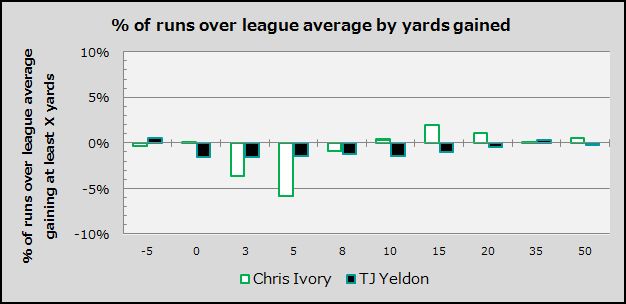
Yeldon was a middling rusher across the board, but Ivory was atrocious at getting past the line of scrimmage. And we can’t blame offensive line play: Jacksonville’s wasn’t obviously better than New York’s. Even if the Jaguars plan to use Ivory over Yeldon in short-yardage situations, he may not keep that role for long.
Alas, most owners rostering Yeldon aren’t discounting him much based on the news. But if you can find someone willing to part with him for the 1.11 or later, I’d make that move.
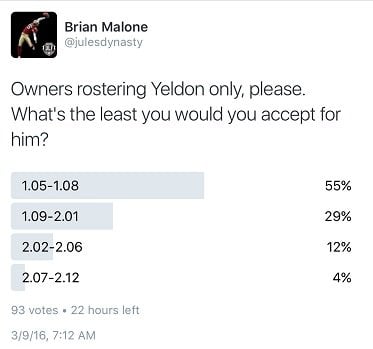
Blake Bortles, Allen Robinson, and Allen Hurns
Bortles and Hurns are the sneaky losers in this acquisition. Ivory’s signing indicates Jacksonville’s desire to move away from 2015’s pass-happy ways. When you include sacks as non-rushes, the Jaguars ran the ball on only 35% of plays in 2015. Only the Dolphins, Ravens, and Lions ran less. Ivory’s addition suggests they’ll move toward the middle of the pack in 2016 — even further toward the middle than they otherwise would have, that is. To be sure, run-pass ratio is largely driven by game script, and Ivory doesn’t do much to improve the team on that front. But if nothing else, he’s a signal that the front office thinks they’ll be in a position to run more often in 2016.
This is all bad news for Bortles, whose success was driven by volume. It’s also bad news for Hurns, the offense’s number-two target. Most owners won’t change their valuations of these two based on Ivory’s signing, so now is the time to get a first-round rookie pick for either player. Robinson should still get his targets, though, so I wouldn’t worry much about him.
[/am4show]
- Dynasty Capsule: Miami Dolphins - January 26, 2019
- Dynasty Capsule: Buffalo Bills - January 21, 2019
- Dynasty Capsule: Carolina Panthers - January 21, 2018





